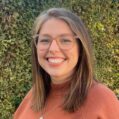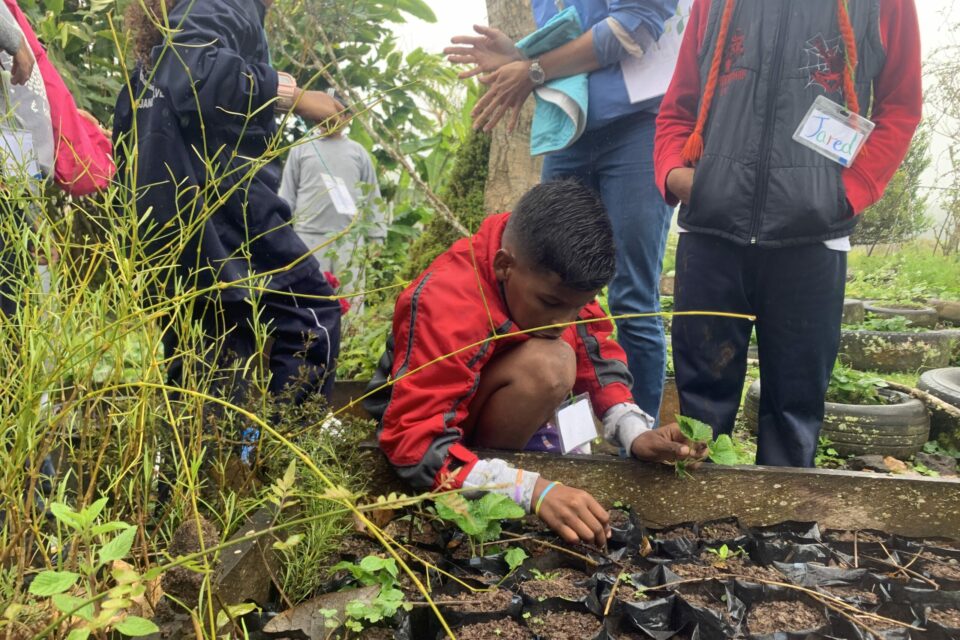

Food for Thought – GCT’s new family gardening project in Galapagos
GCT is facilitating the opportunity for families in Galapagos to grow their own food, to help mitigate some of the financial hardship the community faces from the sudden halt in tourism due to the COVID-19 pandemic.
In the first few weeks of the COVID-19 lockdown in 2020, hundreds of thousands of people in the UK searched online for advice on how to start a vegetable patch or grow fruit in containers. At GCT, we were no exception, with several staff members taking the opportunity to grow tomatoes, courgettes and other vegetables.
While for many people growing vegetables at home has become an increasingly popular hobby, the ability to cultivate your food at home is so much more critical in isolated places like Galapagos. Due to the pandemic, residents in Galapagos have been feeling the burden of lost income since the shutdown of tourism, which makes up more than 80% of the local economy. The poverty rate on the Islands will likely climb in 2020 – already 8% of families were living below the poverty line – meaning homegrown food is more critical than ever.
Hacienda Tranquila, SA (HTSA) “Peaceful Ranch” is a sustainable agricultural farm on San Cristobal. They noticed the need for increased food security and to support local families during this difficult time. 97% of the Islands is designated as National Park, which leaves just 3% for community life, including farming, and many families don’t live in homes with accessible green space. Approximately 75% of the fresh food consumed on the Islands is imported from the mainland. With movement restrictions in place, access to food has been increasingly limited and significantly more expensive.
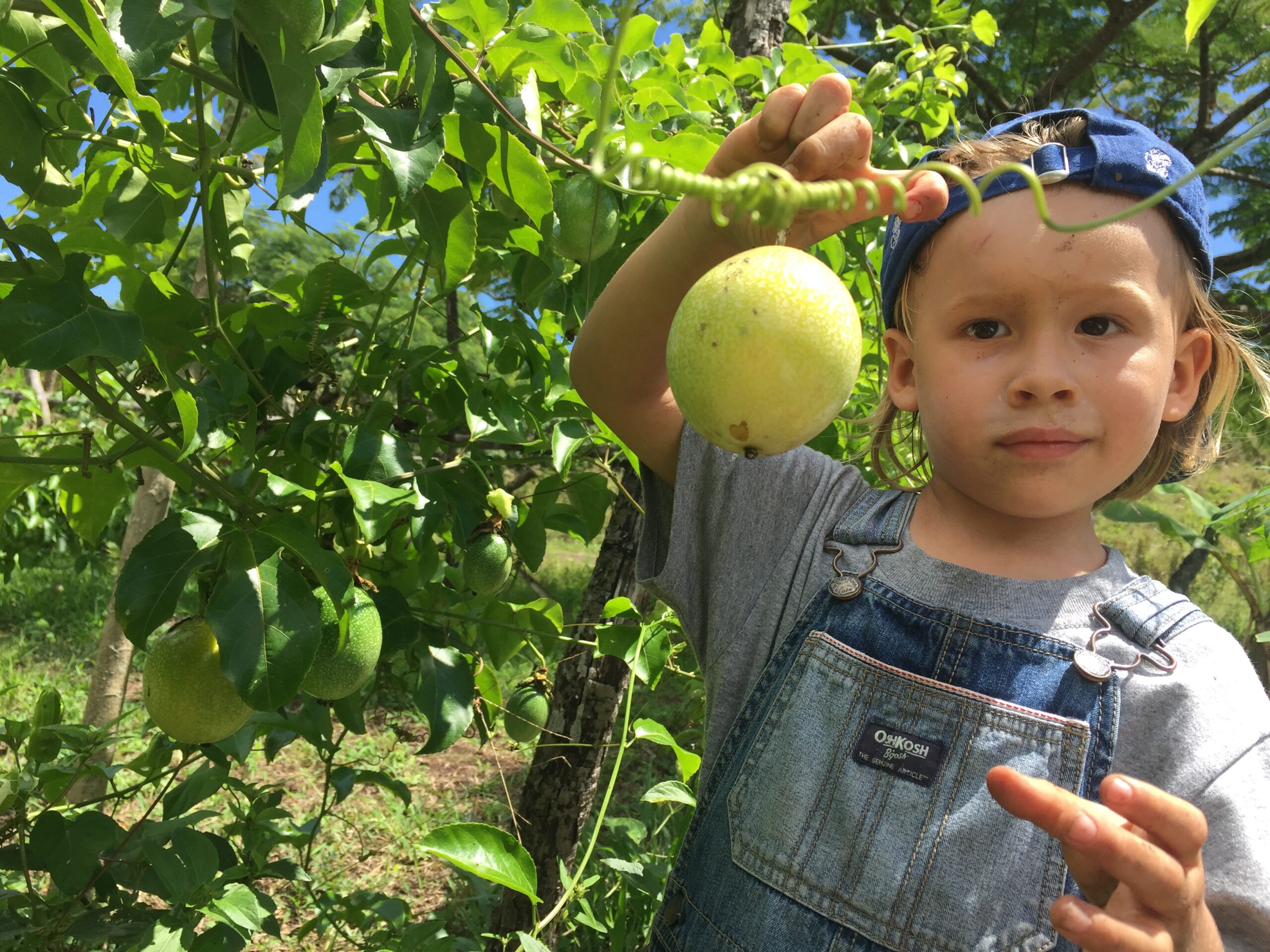
However, it is so important to facilitate local people to be able to grow their own food so they can become self-sufficient. In addition to the socio-economic benefits, there is substantial research which shows that people who connect with nature as children develop stronger conservation and sustainability values. They are more likely to protect the environment when they grow up. 40% of the 30,000 Galapagueñans are under 15 years old. The young people of Galapagos are so vital for building a culture of sustainable living and environmental awareness.
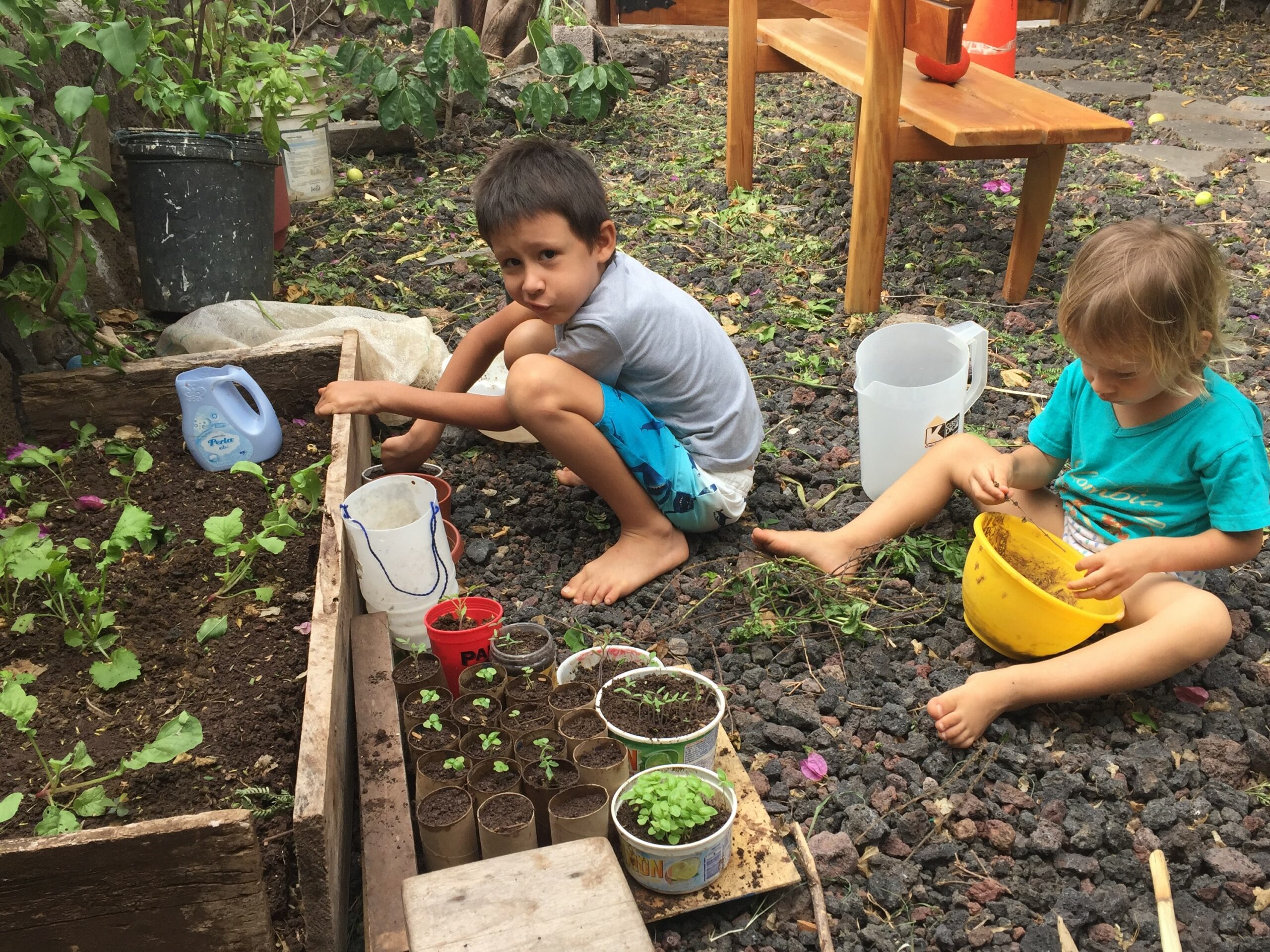
With our project partners HTSA, the Galapagos Family Gardening project is using gardening to tackle food security during COVID-19. The project will harness HTSA’s skill of building community through purposeful human-nature interactions and deepen the respect for nature with local families. The project will develop a network by providing teachers with educational garden packs. The HTSA team want to take this opportunity to support families while they adjust to the post COVID world – helping them make their home a refuge. The educational gardening packs produced contain two edible plant seedlings and two endemic plants seedlings to promote pollination. The project also looks to promote proper nutrition and creative cooking with a social media campaign to improve and vary diets, weekly recipe webinars and encourage sharing of recipes to inspire and motivate families. At the end of the project families will evaluate how their garden has performed and the connections they have forged with one another and nature.
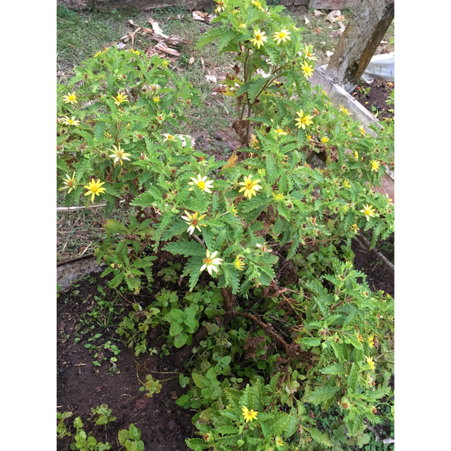
By facilitating the opportunity for families to grow their own food, we can help mitigate some of the financial hardship the Galapagos community face from the sudden halt in tourism. And, by increasing the accessibility of nature, we will inspire families and instil passion in the future ambassadors of Galapagos for the incredible wildlife that shares their Islands right from their home. Without support and enthusiasm of the people who live in the Enchanted Isles, how will we ever be able to protect them?
You can find out more about this project on our project page. Please visit our blog for project updates.
How you can help
Help us inspire even more young people and donate to our Connecting With Nature Programme today or sign up as a GCT member. Becoming a regular giver helps us to plan ahead and make long-term decisions to protect the Galapagos Islands with steady income we can rely on.
This article originally featured in the 2020 Autumn/Winter edition of Galapagos Matters and has been updated and adapted for this blog.
Related articles


Urban Family Gardening: Positivity amidst the pandemic

Connecting with Nature webinar 2021

